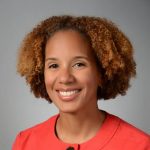
06 Feb Understanding the Science of Community-Engaged Research
850 Republican Street
Seattle WA
98109
Description
Partnership between communities and researchers is essential for improving human health. While many investigators are aware of the importance of engaging the community in the research process, there are still challenges in ‘how’ to accomplish this important task.
During this training, you will learn the key principles of community-engaged research (CEnR). From an introduction to the continuum of engagement to methods used to structure community engagement, you will learn where your research fits within the field and the next steps for engaging the community in your research.
Due to the high level of interactive training, this series is available as a hands-on, in-person experience only.
Schedule of activities
- 12:00 pm – 1:30pm: Seminar and lunch
Learning objectives
Attendees will leave with the following essential takeaways:
- How to engage communities in research covering the full continuum of community engagement, from investigator-initiated through community-based participatory research
- Strategies for identifying and connecting with the right community
- Strategies for keeping the community engaged throughout the research process
- Strategies for maintaining community relationship, beyond dissemination
About the speakers
 Tumaini Rucker Coker, MD, MBA, is Associate Professor of Pediatrics at the University of Washington, Director of Research at Seattle Children’s Center for Diversity & Health Equity, and Principal Investigator at the Seattle Children’s Research Institute Center for Child Health, Behavior and Development. Dr. Coker serves as co-director for the ITHS Integrating Special Populations program. Dr. Coker’s research focuses on community-partnered design and investigation of new and innovative methods of delivering primary care services to children in low-income families. She practices primary care at Odessa Brown Children’s Clinic.
Tumaini Rucker Coker, MD, MBA, is Associate Professor of Pediatrics at the University of Washington, Director of Research at Seattle Children’s Center for Diversity & Health Equity, and Principal Investigator at the Seattle Children’s Research Institute Center for Child Health, Behavior and Development. Dr. Coker serves as co-director for the ITHS Integrating Special Populations program. Dr. Coker’s research focuses on community-partnered design and investigation of new and innovative methods of delivering primary care services to children in low-income families. She practices primary care at Odessa Brown Children’s Clinic.
 Linda Ko, PhD, is the director of the Health Communication Research Center (HCRC). She is a behavioral scientist with expertise in the development, testing, evaluation, and dissemination of health communication strategies. Her work draws from the discipline of communication, marketing, social epidemiology, and social and behavioral sciences. Dr. Ko serves as co-director for the ITHS Community Engagement program. Her research aims to understand community’s behavior within the socio-cultural context, develop interventions that will address those behaviors and translate knowledge through community-based participatory research.
Linda Ko, PhD, is the director of the Health Communication Research Center (HCRC). She is a behavioral scientist with expertise in the development, testing, evaluation, and dissemination of health communication strategies. Her work draws from the discipline of communication, marketing, social epidemiology, and social and behavioral sciences. Dr. Ko serves as co-director for the ITHS Community Engagement program. Her research aims to understand community’s behavior within the socio-cultural context, develop interventions that will address those behaviors and translate knowledge through community-based participatory research.







